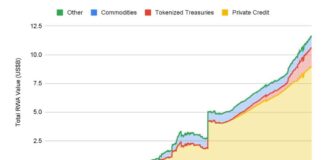Kalshi, a New York-based company, has recently launched its highly-anticipated election prediction markets after emerging victorious from a year-long legal battle with the Commodity Futures Trading Commission (CFTC). The company’s new “which party will win the Senate?” and “which party will win the House?” contracts are now live on its website, marking a significant milestone in the realm of regulated election markets.
Legal Victory and Launch of Election Contracts
Following a federal judge’s decision to reject the CFTC’s last-minute attempt to halt the listing of the contracts, Kalshi wasted no time in introducing its election prediction markets to the public. Tarek Mansour, Kalshi’s co-founder and CEO, expressed his excitement about this development, stating that this event marks the first trade made on regulated election markets in nearly a century.
The court battle between Kalshi and the CFTC culminated in a favorable ruling for the former, with U.S. District Court Judge Jia M. Cobb determining that the CFTC had overstepped its statutory authority in trying to prohibit election betting through Kalshi’s platform. This decision paved the way for the company to proceed with its plans to offer contracts related to the outcomes of the 2024 election.
Challenges and Concerns
Despite the legal victory, the CFTC has indicated its intention to appeal the case, posing potential challenges for Kalshi in the future. During a telephonic hearing, the CFTC raised concerns about the susceptibility of election gambling contracts to manipulation and their potential impact on public confidence in election integrity. The agency’s lead attorney emphasized the risks associated with market participants having significant financial incentives to influence election outcomes.
In response to these concerns, Judge Cobb acknowledged the CFTC’s apprehensions but emphasized the need for concrete evidence of irreparable harm to justify halting the listing of the contracts. While the CFTC’s lawyer argued for a stay on the court’s decision, Kalshi’s legal team highlighted the economic implications of any delays, noting that such actions could drive business to unregulated competitors.
Implications and Reactions
Caroline Pham, a commissioner at the CFTC, characterized the agency’s defeat as self-inflicted, pointing to the court’s alignment with her earlier concerns regarding the agency’s interpretation of its rules and statutes. The decision in favor of Kalshi has also raised questions about the limitations of the CFTC’s authority and the potential implications of the Supreme Court’s Loper decision on regulatory oversight.
Better Markets, a lobbying group advocating for robust financial market regulation, highlighted the adverse effects of the Supreme Court’s ruling on agency deference and its impact on the CFTC’s ability to protect the public from risky contracts like those offered by Kalshi. The group emphasized the importance of technical expertise and experience in interpreting statutes, suggesting that these factors were overlooked in the court’s decision.
Moving Forward
As Kalshi forges ahead with its election prediction markets, the company faces both opportunities and challenges in navigating the regulatory landscape and addressing concerns raised by the CFTC. The outcome of the legal battle and the subsequent launch of the contracts signal a significant development in the field of regulated election markets, marking a new chapter in the intersection of finance and politics.

















